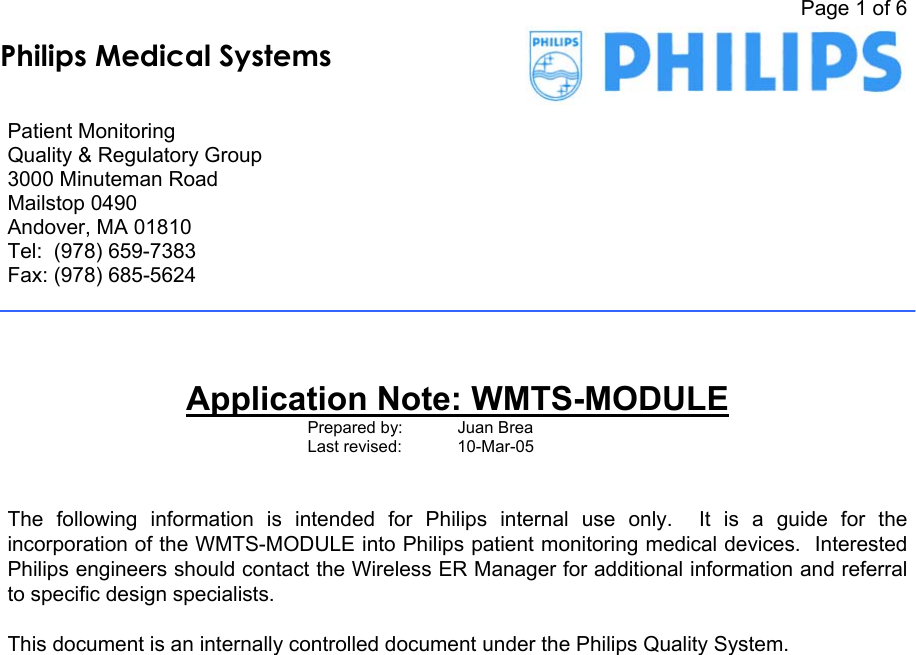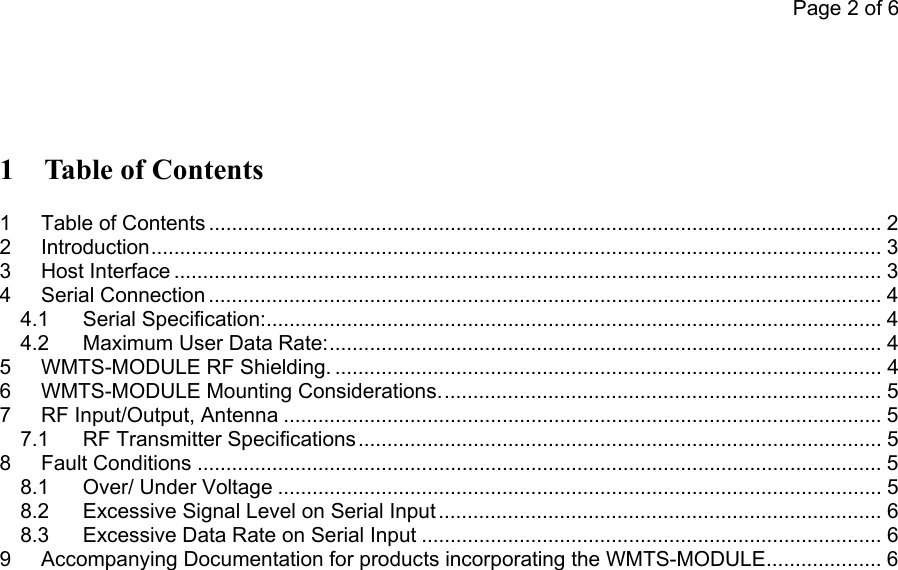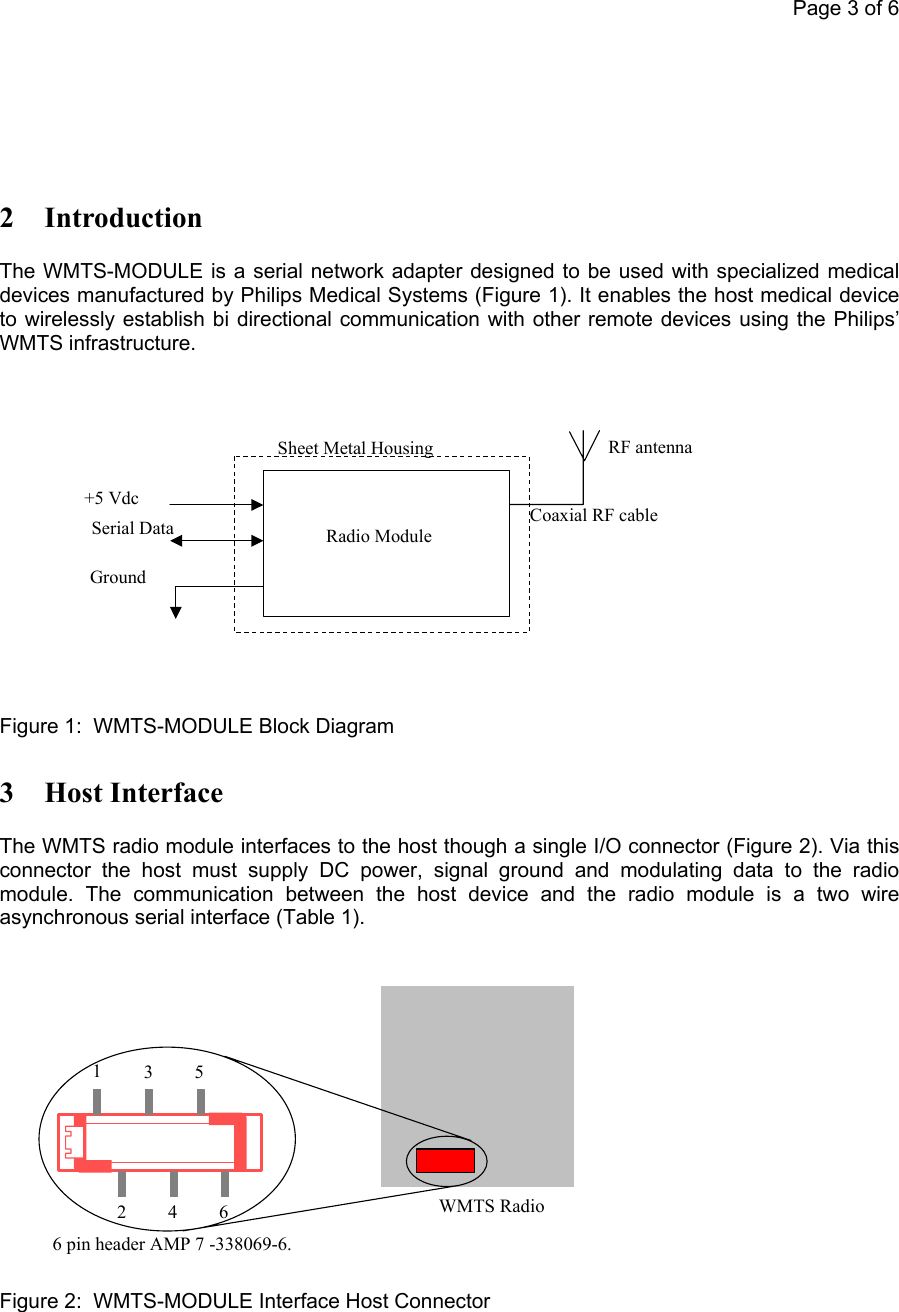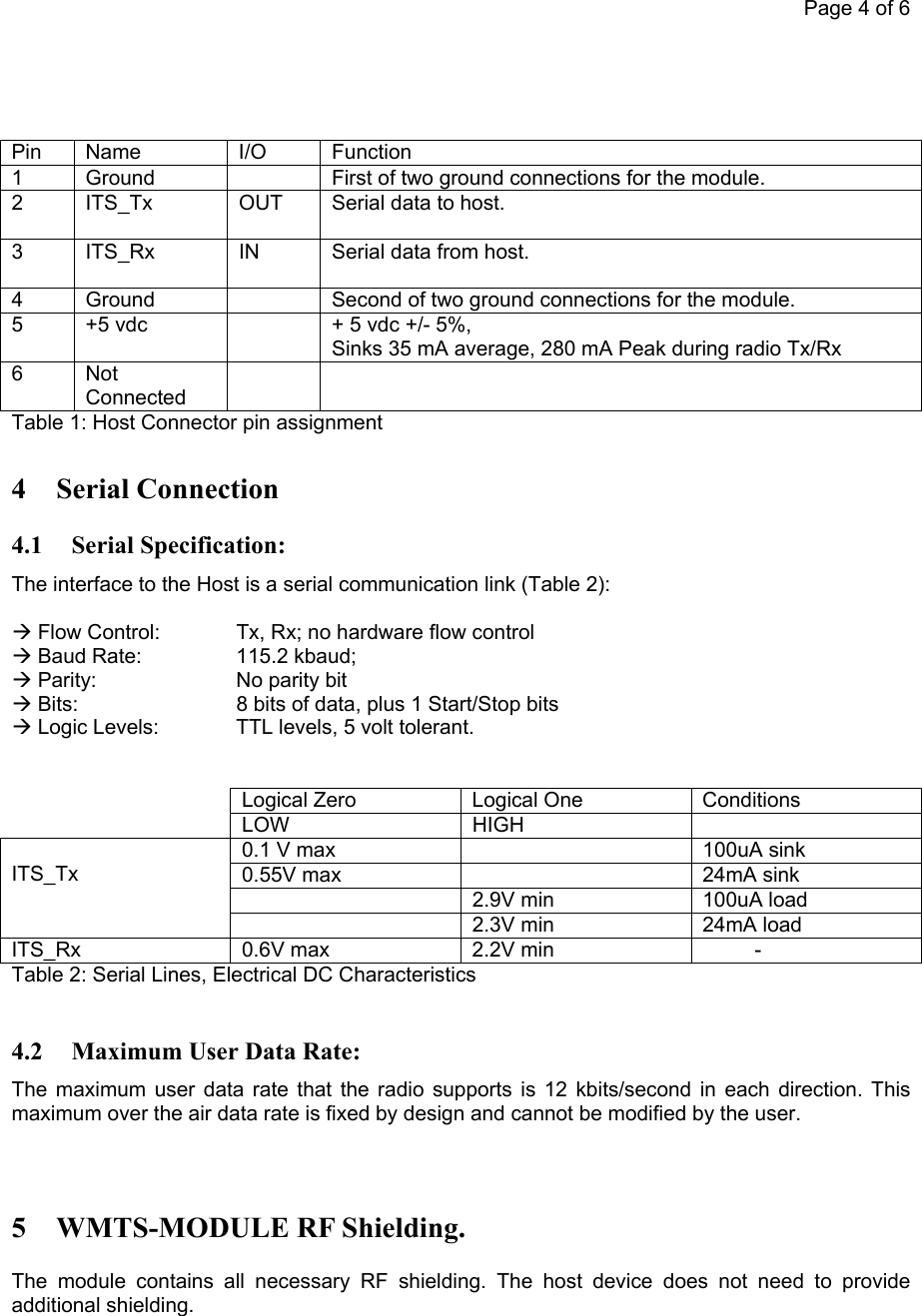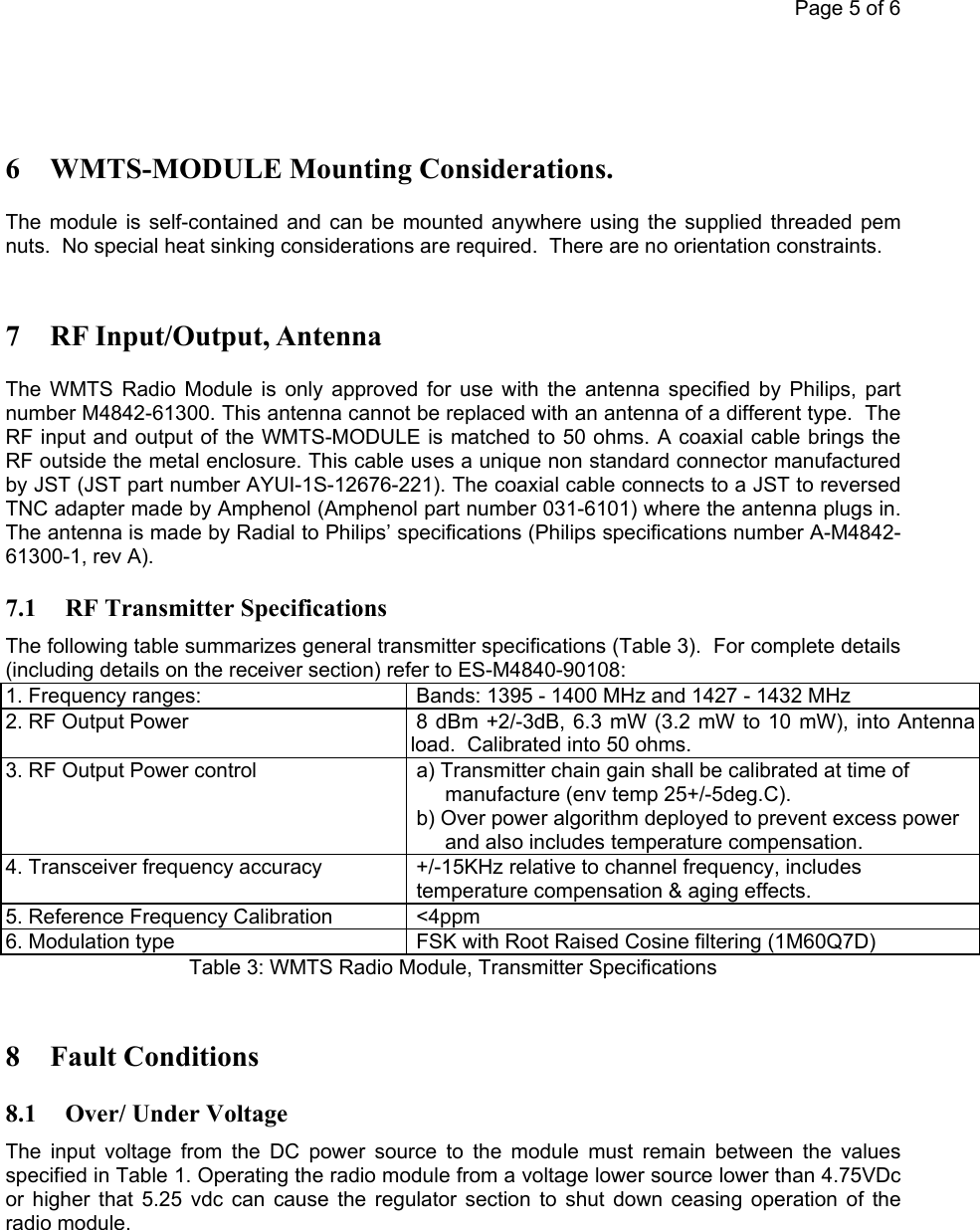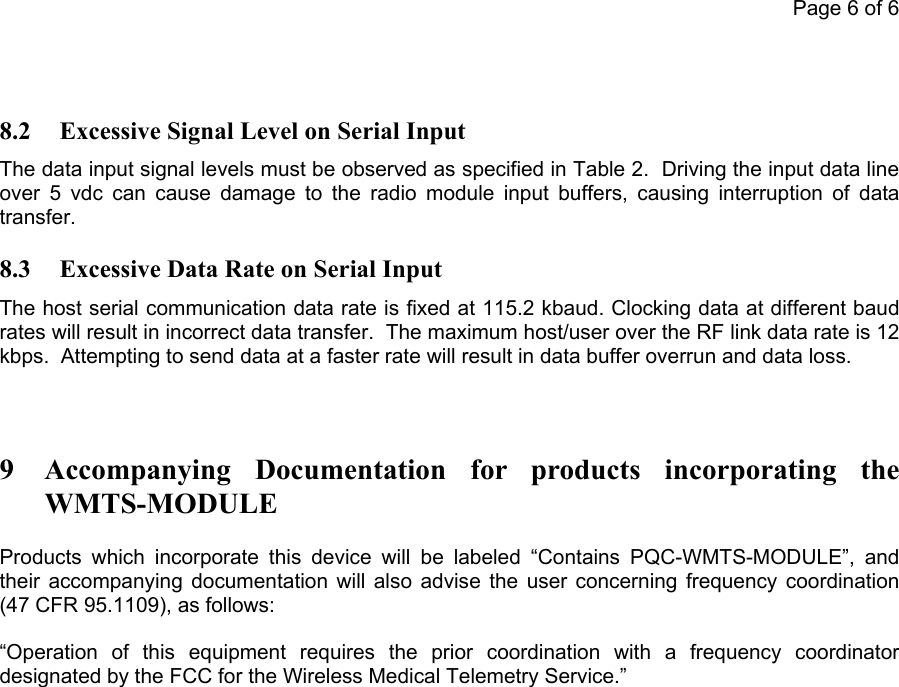Philips Medical Systems North America WMTS-MODULE WMTS Radio Module User Manual Application Note
Philips Medical Systems North America Co. WMTS Radio Module Users Manual Application Note
Contents
- 1. Users Manual Application Note
- 2. USERS MANUAL
Users Manual Application Note
